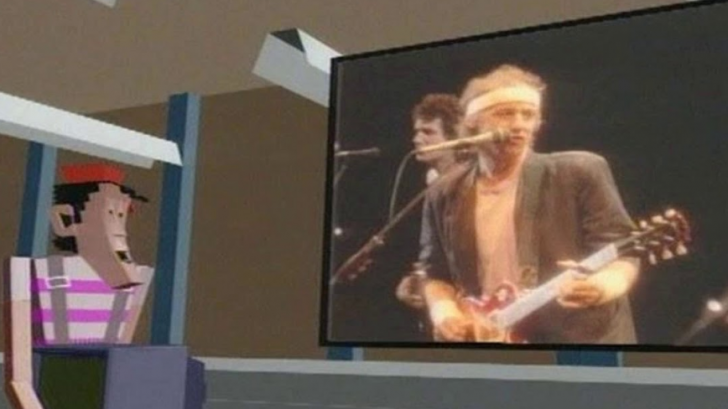Until the release of the album Brothers in Arms, Dire Straits was an excellent band with average sales, publishing good albums, of which their previous album to the one already mentioned, was Love Over Gold, an album that could be classified as ambient music, already which is almost instrumental and contains only five (5) songs, being the shortest in musical content of their discography, and which had been well received by the public, however prior to Love Over Gold, they had released the great live album Alchemy, therefore, with these antecedents, the edition of the album Brothers in Arms had a favorable wind, what the band did not know or could imagine was the great help that they were going to reap from that wind in favor.
Much of that help is due to this “Money for Nothing”, of course, the song alone did not do everything, the album was composed of material and quality, not only were there songs like the one that gives its name to this article, the album also included tracks of the stature from Walk of Life, Your Latest Trick, So Far Away, and Brothers in Arms.
So Money For Nothing, became not only the best-selling single in the history of the band but also helped make the album Brothers in Arms one of the best-selling in history, so it converted both the album and the song in classic immortals in its own right.
Money For Nothing was composed because chance wanted it to be, it turns out that while the band was in the US, specifically in New York City, the guitarist and composer Mark Knopfler together with the bassist John Illsley, stopped in a store that sells household appliances, while they waited to be served, Knopfler was listening to the comments that the employees of the same aired, comments originated by the images that transmitted the televisions that they had for sale: the videos of the then incipient MTV.
He observed among all the things that there was, he saw a wall of televisions which were tuning in to the MTV channel, at that time in the incipient phase. A man who worked there delivering boxes stopped to watch televisions next to him, and began to say phrases like “what are those, Hawaiian noises?” or “that ain’t working …”, the man who wore a plaid shirt and a baseball cap, complained openly and loudly and did not stop pronouncing hurtful phrases towards the artists, he lamented his work with the refrigerators and microwave and cursed not having learned to play the guitar or drums, criticized that these people made millions making garbage music, that they made a lot of money for doing nothing, that they had all the girls they wanted, in addition to making fun of their appearance and shape to wear.
Amazed by the pejorative and almost homophobic way of the comments made, Knopfler asked for a pen and paper to be able to write down what he was saying, as if taking dictation, he wrote those sentences that were like daggers thrown by the worker when talking about the triumph easy or how simple life is rock stars.

